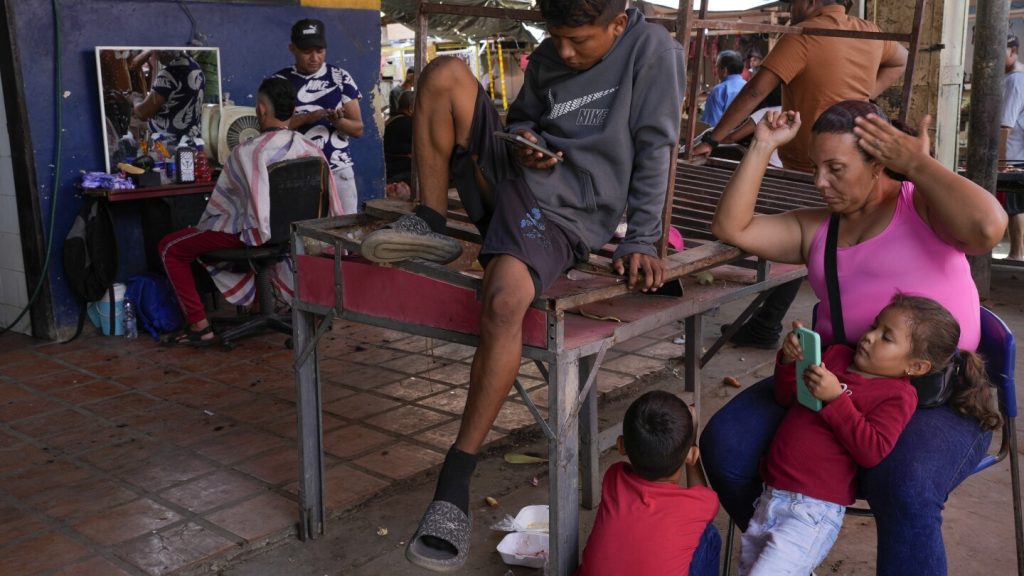In Maturin, Venezuela, a municipal market bustles with weekend customers looking for deals on produce, meat, cheese, and other essential items. Despite the days of food shortages being mostly gone, families continue to struggle due to low salaries and high costs. With many earning under $200 a month, getting the basics becomes a constant challenge. People work multiple jobs, start businesses, and gamble in an attempt to make ends meet, with every decision involving careful calculations.
The upcoming presidential election in Venezuela has sparked hope for change among many residents who have been affected by the country’s economic crisis for over a decade. The ruling party’s hold on power appears to be vulnerable, as the population seeks a new leader who can bring an end to the ongoing distress. Middle school teacher Cruz Brito is one of many who are praying for a new president, as the current situation has left her feeling hopeless at times, despite her strong faith in God.
Public employees in Venezuela receive a minimum monthly wage that amounts to around $3.50 due to currency exchange rate fluctuations. Additional benefits, such as a food assistance bonus and a government stipend, bring some relief, but families still struggle to afford a basic basket of goods that costs at least $385 per month. Brito, an English teacher, tries to supplement her income by playing casino games, doing translations, and selling freezies on the streets of Maturin. Private sector workers fare slightly better but still earn below poverty levels.
In Maturin, a city once known for its thriving middle class, signs of economic downturn are visible everywhere. Homes are in disrepair, businesses are boarded up, and cars have become a luxury due to high costs. Retirees like Israel Gimon, a former construction manager, now rely on side businesses like selling ice and repairing appliances to make ends meet. With limited income streams and rising prices, Gimon struggles to provide for his family, often resorting to buying cheaper food options like organ meats to save money.
The government in Venezuela provides social benefits through programs like the Fatherland Card, which offers access to subsidized food, gasoline, medicines, and other essentials. While these programs aim to alleviate poverty, critics argue that they are used as tools for political control during elections. Many residents, like Nilda Contreras, have been forced to find creative ways to supplement their incomes, such as selling cakes and ice cream. Contreras, who once had a higher quality of life, now struggles to afford essential medications due to insufficient government support.
As the country prepares for the upcoming presidential election, hopes for economic reforms and higher wages are high among the Venezuelan population. Opposition leaders like María Corina Machado and her endorsed candidate, Edmundo Gonzalez Urrutia, represent a potential change for many who have been impacted by the prolonged crisis. With the future of Venezuela hanging in the balance, residents like Cruz Brito and Israel Gimon continue to navigate the challenges of daily life, hoping for a brighter and more prosperous tomorrow.


